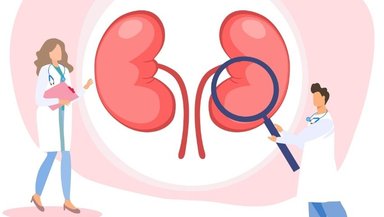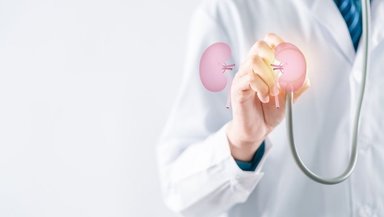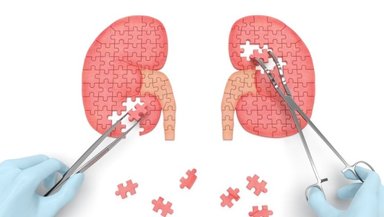10 Myths About Kidney Stone Removal You Should Stop Believing

Medicine Made Simple Summary
Kidney stone removal is surrounded by fear and confusion. Many patients in India worry about pain, surgery, cost and recovery because of the myths they hear from friends, family or the internet. These misunderstandings often stop people from seeking timely treatment, much like other medical fears driven by kidney transplant myths.In this article, kidney stone removal is explained in simple, clear language so that anyone between 15 and 40 can understand the facts without medical background. By the end, you will know the truth behind ten common myths and feel confident about making safe choices for your health.
Introduction: Why These Myths Matter
Kidney stones are extremely common in India due to hot weather, dehydration, dietary habits and genetic factors. But when it comes to removing stones, many people hesitate because of misinformation. Myths create fear. Fear causes delay. Delay can lead to infection, kidney damage or repeat hospital visits, affecting long-term kidney health just as delayed preparation for kidney transplant can affect outcomes. Understanding what is true and what is not helps patients approach treatment calmly and confidently. Kidney stone removal today is safer, faster and less painful than ever. Knowing the facts empowers you to choose the right treatment at the right time.
Myth 1: All Kidney Stones Require Surgery
Many people believe that every kidney stone must be surgically removed. This is false. Most small stones pass on their own with proper hydration and medicines. Doctors usually wait and watch when the stone is small enough and not causing complications. Surgery is recommended only when the stone is too large, stuck, infected or causing severe pain that affects daily life, similar to how surgical decisions are carefully made in kidney paired donation and transplant planning.
Myth 2: Kidney Stone Surgery Is Extremely Painful
Pain is one of the biggest fears patients have. Older surgical methods used to be more invasive, which created this belief. Modern kidney stone removal techniques used in India today are far less painful. Methods like ureteroscopy and laser treatment are performed under anaesthesia, so patients do not feel pain during the procedure. Even after the procedure, most patients experience only mild discomfort, comparable to recovery expectations explained in life after kidney transplant discussions.
Myth 3: Shockwave Therapy Always Breaks the Stone in One Go
Extracorporeal Shock Wave Lithotripsy, or ESWL, uses sound waves to break stones. Many people believe that the stone always breaks in one session. That is not always true. Some stones require two or three sessions for complete clearance, especially if the stone is hard or located deep in the kidney. The success of shockwave treatment depends on stone size, density, and position. It is a safe method, but it is not a magic wand.
Myth 4: Laser Treatment Melts the Stone Like Heat
Laser treatment is commonly misunderstood. Patients often imagine a hot beam melting the stone. Laser does not melt stones. Instead, it breaks stones into tiny dust-like particles using controlled energy. The process is safe and precise. The laser used in kidney stone surgery does not burn the kidney or surrounding tissue. Because of its accuracy, it has become one of the most preferred treatments for stones in India today.
Myth 5: Kidney Stone Removal Always Damages the Kidney
Many patients worry that surgery may harm their kidney. Modern procedures do not damage healthy kidney tissue. In fact, leaving a large stone untreated is much more harmful. Blockage, infection or pressure caused by the stone can reduce kidney function. Procedures like ureteroscopy, shockwave treatment and percutaneous surgery are designed to protect the kidney, similar to safeguards used in transplant medicine to minimise immunosuppressant side effects after kidney transplant. The goal is always to preserve kidney function, not harm it.
Myth 6: Stents Are a Sign of a Serious Problem
Ureteral stents are thin tubes placed temporarily to help urine flow after surgery. Many patients panic when they hear about stents. Some think it means something went wrong. But stents are extremely routine and help the healing process. They prevent blockage and reduce pain caused by swelling after stone removal. Stents are removed easily in a short outpatient procedure. Feeling mild irritation while the stent is inside is normal, but it is not a sign of a major issue.
Myth 7: You Must Stay Admitted in the Hospital for Several Days
Most kidney stone procedures today are day-care treatments. Patients often go home the same day or within 24 hours. Older open surgeries required long hospital stays. Modern methods like laser removal, shockwave therapy and ureteroscopy require very little recovery time. Many working professionals return to routine activities within a day or two. Only very large or complicated stones require longer hospital stays.
Myth 8: All Kidney Stone Surgeries Are the Same
Not all procedures are the same. Each has a specific purpose. Shockwave treatment works best for smaller stones in the kidney. Laser and ureteroscopy are ideal for stones stuck in the ureter. Percutaneous nephrolithotomy is used for large stones. The right treatment depends on stone size, location, hardness and the patient’s health. A good urologist chooses the safest and most effective method for your situation.
Myth 9: Drinking Home Remedies Can Make the Stone Disappear
Many patients in India try home remedies like lemon juice, coconut water, herbal drinks or even oil mixtures. While drinking more fluids helps, these remedies cannot dissolve most types of stones. Calcium oxalate stones, the most common in India, do not dissolve with home remedies. Relying only on home methods can delay proper treatment and cause complications. Hydration supports kidney health, but it is not a replacement for medical guidance.
Myth 10: Once a Stone Is Removed, It Will Never Come Back
Kidney stones can return if lifestyle changes are not followed. Many people believe that surgery is the final solution. But kidney stones are often a metabolic condition. Factors like dehydration, high-salt diets, low water intake, genetics, certain medications and medical conditions can cause stones to form again. Prevention is an essential part of long-term care. Drinking adequate water, reducing salt and following dietary advice help prevent recurrence.
How to Know Which Treatment Is Best for You
The right treatment depends on the type of stone, its size, location and your symptoms. The doctor may recommend urine tests, blood tests and scans to understand your condition fully. A personalised plan is always more effective than a generic recommendation. Choosing a qualified urologist and a hospital with advanced facilities ensures you receive the safest care.
Recovery After Kidney Stone Removal in India
Recovery depends on the type of procedure done, but most modern treatments allow faster healing. Patients may feel mild discomfort for a few days. Drinking enough water helps flush out any remaining stone fragments. Some patients experience urinary frequency or mild irritation if a stent is placed. This improves once the stent is removed. Following your doctor’s instructions helps avoid infections and complications.
Why Understanding the Truth Matters
Myths create unnecessary fear and delay treatment. When you know the facts, you make better choices. Kidney stone removal is far safer and more comfortable today than ever before. Quick action prevents long-term kidney damage and reduces the chance of repeat stones. Patients who understand the truth feel more confident and calm.
Conclusion
If you or someone you know is struggling with kidney stone symptoms, do not rely on myths or fear. Speak with a qualified urologist and get a proper evaluation. Early guidance leads to safer, faster recovery and prevents complications. Take the first step and schedule a consultation to understand your treatment options with clarity.




















